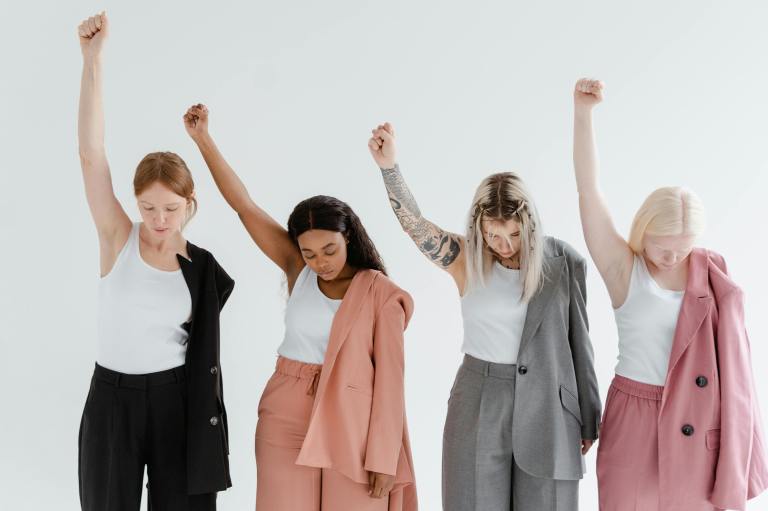
Why Women Are Deleting Bumble and Choosing Bears Over Men: Dating Apps and Their Great Fumble
Bumble apologizes for its great fumble of an ad campaign against celibacy for women - against a backdrop of the 4B movement where women are opting out of dating apps and "bear vs. man" debate.
It’s been an interesting couple of months for women, to say the least. The 4B movement which encourages principles of celibacy and a departure from heterosexual dating, marriage, and childrearing recently began gaining popularity in the United States after originating in South Korea, with therapists commenting that this movement seems to have improved the mental well-being of their clients. Over the past few years since the pandemic, hookup culture began to wane, and women began leaving dating apps en masse as they realized the pervasive misogyny and violence on the apps that seemed to affect almost every woman. In a related issue, across social media, people shed light on the widespread nature of violence against women with the infamous “man vs. bear” question (would you rather be alone in the woods with a bear or a strange man?). The response to this hypothetical question highlighted the numerous ways women often feel unsafe not just in the dating world but in their day-to-day life in general, as they’ve been stalked, harassed, catcalled, followed, assaulted, and retaliated against for not being receptive to the advances of strangers.
Many women were outraged to see Bumble share controversial slogans on their new billboard ads such as, “You know full well a vow of celibacy is not the answer,” “Thou shalt not give up on dating and become a nun,” and “A vow of celibacy is not the answer.” The founder and CEO of Bumble has since responded in an Instagram comment to the outrage, “We are removing the billboard with those messages, we completely missed the mark. Completely agree that it is a safe and important option when the laws are so restrictive and unfair and dangerous for women. We got this one wrong.”
Yet despite women sharing the very valid reasons why they may be opting out of the misogynistic culture of dating and relationships at this time, Bumble recently launched a controversial new ad campaign that pushed against women’s agency and choices. Many women were outraged to see Bumble share slogans on their new billboard ads such as, “You know full well a vow of celibacy is not the answer,” “Thou shalt not give up on dating and become a nun,” and another variation, “A vow of celibacy is not the answer.” Many women (and men) were quick to point out that this campaign felt like dating apps are feeling threatened by the number of women leaving the apps or opting into the 4B movement to pursue happier lives. The founder and CEO of Bumble has since responded in an Instagram comment to the outrage, “We are removing the billboard with those messages, we completely missed the mark. Completely agree that it is a safe and important option when the laws are so restrictive and unfair and dangerous for women. We got this one wrong.”
These ads spread a harmful message about how women shouldn’t make their own decisions, despite promoting a dating app that is based on women making their own choices.
Strangely, these ads used images that also seemed to be marketed toward women of color especially, or at the very least featured women of color, hinting that they are trying to reach this demographic or come across as inclusive and nonthreatening, while in reality, spreading a harmful message about how women shouldn’t make their own decisions – despite being an app that is based on women making their own choices! For a dating app that initially presented itself as a safe space for women to make their own choices as to who to pursue (although some women may view it as ultimately, a misleading attempt at romance that only pushes them to approach low-effort men), this feels remarkably tone-deaf, and in many ways perpetuates an entitlement to women’s bodies as a “product” to be sold.
Circling back to the “strange man versus bear debate,” these ad campaigns are happening in a context where a unanimous unison of women declared that they would feel safer with a bear than with a strange man alone in the woods, with plenty of heartbreaking reasons why (e.g. some responses included things like, “The bear won’t attack me for no reason and tell me I enjoyed it,” “Statistically, the bear is more likely to leave me alone than a stranger,” “Bears won’t tell me I was assaulted because of what I wore,” “Sexual and physical violence against women are worldwide and very common – bear attacks are actually less common than being attacked by a man”). Some male survivors of sexual violence also affirmed the same and gave their support for the bears. The “grizzle, grizzle” movement was thus born, but this campaign for awareness about the violence that touches women every day is nothing new, and it has certainly been accelerated by dating apps.
Given that women on dating apps share countless stories of aggression, violence, and even danger in their experiences, and there has been little done to safeguard them, many women feel it is counterintuitive and dangerous to push them back into the arena that made them feel so unsafe in the first place. This is not the first time dating apps have come under fire for neglecting women’s safety, and Bumble is certainly not the only culprit here. Yet their latest ad campaign just places salt on the long-lasting wound women have endured in trying to find healthy relationships, only to experience trauma instead. Bears, misogynistic dating apps, or strange men? Many women will choose the bear, thank you very much, and they certainly have their reasons.
@dadchats This is America 🐻 👨











